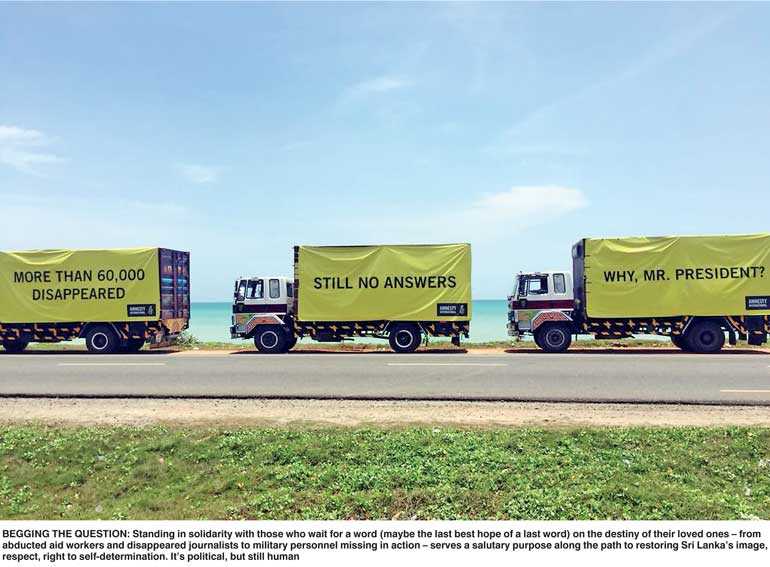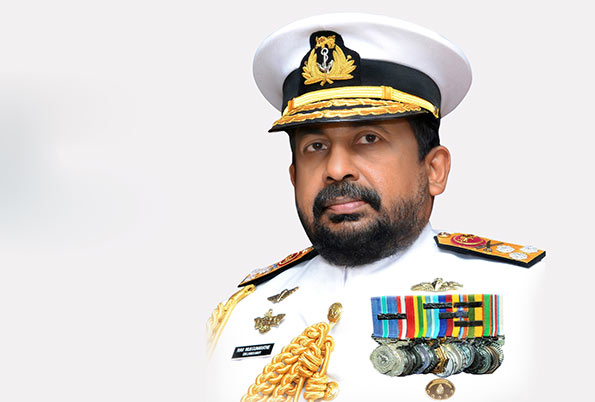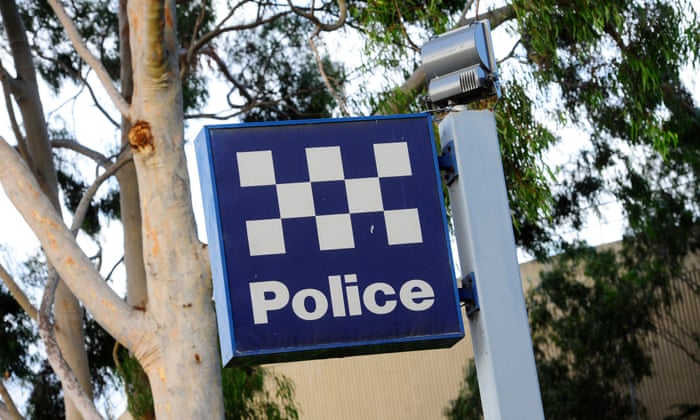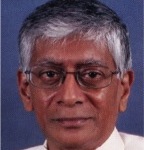Some of you might have watched that video clip taken by journalist Priyadharshini Sivarajah of female prisoners screaming for help from inside a prison bus? The video is linked in comments below.
Since then, much has happened in the prisoners' struggle over their demand for basic facilities and humane treatment. The women were assaulted in the Welikada prison for trying to raise awareness on their sub-human treatment within. One has died.
Others continue on without access to medical treatment after being injured in the assault. Meanwhile most of the populace outside appear to be looking away as this tragedy unfolds, with the typical Sri Lankan attitude of, 'it’s not our business' and 'they deserve it, because they are criminals.'
FYI, a number of these are detainees who have not been charged yet for any crimes - for years on end. Others are petty criminals who were used and abused as drug mules while the drug lords get away with their crimes. Yet others are poverty stricken people who were remanded for something as petty as not paying a fine.
And all of them are thrown into our torturous 'justice system' (the term is a joke) to suffer and roil together. Keep in mind what happens in contrast to true criminals like Gnanasara in this country. Political heavyweights get a cushy deal no matter what it is they did in criminal activities. So do rich people who can bribe their way out, or into better 'prison' conditions. Meanwhile the masses who were abused by the system continue to be abused in horrific conditions in prison while we all look the other way.
I attended a meeting at the Social Science Studies Circle yesterday where a few lawyers and human rights activists actively looking into this matter, discussed the issue and what could be done to alleviate it.
Here are some of the things I learned:
1. The female prisoners are given just one menstrual pad per day during their menstrual cycle. All the women out there would know exactly why this is a devastating human rights blow. Some of us have such heavy flow that we need to wear two at a time to stop overflow - and in that way, I sometimes run through 16 a day in heavy flow. At the bare minimum, a woman would need 5-7 pads a day. No, the prison is not out of money for sanitary pads. Prison officials have apparently told the women, "if we give you too many pads, you'll smuggle drugs into them so this is the limit."
2. Sanitation conditions: We are still using the prions left behind by the British - built in the early 1940s. Hundreds of prisoners are crowded into rooms where they can barely stand up, never mind sleep in. And there are three toilets for 3000 people.
3. Corruption: the conditions as you can imagine is rampant for psychopathic prison guards to rule. Sexual abuse - of both male and female prisoners, is rampant. So is the demand for bribes for the delivery of everyday items needed to survive. - A bucket of water costs Rs.500. - A pillow costs Rs. 50,000. There are prices for food too, but I forget now the charges.
4. Nutrition- one of the demands put forward by the women prisoners is access to basic nutrition. This wasn't discussed in detail yesterday so I am not sure what food they are getting now if at all, but it is a major problem that they have said they are facing. Some of these women have children born in prison, living with them - and those children face the same conditions - lack of sanitation, nutrition, space to play in or even toys to play with. One of the lawyers who had been inside the prison described the conditions as 'hellish' and something that tore him up every time he visited.
The people of this country have largely ignored this problem.
Please remember, you don't have to be a criminal to end up in this system. One of the attendees yesterday talked about how he ended up in remand prison for a day for inadvertently getting into a traffic accident - and his remaining horror to this day over that one day's experience.
He was lucky enough to get out after a day - but there are people who were arbitrarily picked up and have remained there for years without being charged of any crimes.
Even if they are charged and / or convicted, keep in mind that police investigation skills in this country is mainly relegated to randomly arresting people who were in the wrong place at the wrong time in the vicinity of a crime, and torturing them into confessions. There are quite a number of these in prison too. I know one person who was arrested for reporting a suspicious basket on the premises he worked in - and spent five years in jail for it.
During the war years, an easy way for people to settle scores in the North and East was to tell the army / CID / police that the person they had an argument with, had links to the LTTE. I have personally heard this threat thrown around by people on multiple occassions.
In one well known case that made it to the papers in 2003, a woman was arrested on a tip off, as being linked to the LTTE's airport bombing. After two years of torture she underwent in prison to confess, it eventually emerged she was innocent and had been picked up on one such unwarranted accusation to settle scores. She had been an innocent woman living in Trincomalee who been duped into marrying an already married man in Negombo. She had not known he was already married - this too is a very common occurrence; Men duping women multiple times for marriage. Given the community, he probably also got a fat dowry. When she came up from Trincomalee to live with him in Negombo, she discovered his other family already there and refused to live with him as his second wife. She had left immediately, but the man had kept on threatening her he would report her as an LTTEer if she did not return to live with him. He eventually carried out this threat and the woman was tortured for 2 years in prison for it.
Her case was eventually overturned but you can imagine the number of cases that were NOT similarly overturned.
Even assuming that people in prison are indeed criminals and are deserving of being incarcerated, being imprisoned is punishment enough. Torture, abuse and withholding of basic human facilities should NOT be condoned, to whomever it might be.
~
The Social Science Studies Circle members and other well wishers will be holding a protest in front of Welikada Prison, on Monday at 12 noon, to demand humane treatment of prisoners.
Please attend if you can, and look at the diverse ways you can lend support to overhaul this system, that belongs in the middle ages, not 2018.
Thank you.







 The Sri Lankan man charged with terror-related offences was due to appear in court in Sydney on Friday. Photograph: Julian Smith/AAP
The Sri Lankan man charged with terror-related offences was due to appear in court in Sydney on Friday. Photograph: Julian Smith/AAP







-TAS----FINAL-17.jpg)

 Ibrahim Talalqa on duty during a recent protest that was part of the Great March of Return.Mohamed Hajjar
Ibrahim Talalqa on duty during a recent protest that was part of the Great March of Return.Mohamed Hajjar





